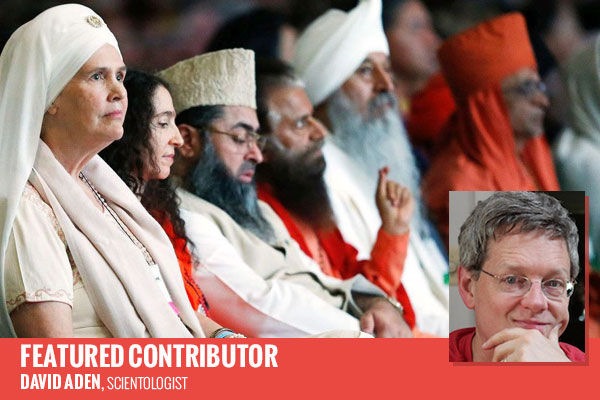
On Thomas Jefferson’s Legacy and Religious Freedom Day
- By David Aden --
- 10 Jan 2017 --

A Scientologist reflects on the importance of the freedom of religion and belief, its historic roots, and the responsibility of the individual to exercise and defend this right.
Some years ago when I toured Monticello with my family I learned that Thomas Jefferson wanted to be remembered for three things: The Declaration of Independence, founding the University of Virginia, and writing the Virginia Statute for Religious Freedom.
On Thomas Jefferson’s Legacy and Religious Freedom Day[/tweetthis]
But it wasn’t until today that I read the Virginia Statute for Religious Freedom, a short three-paragraph defense of the right to free belief. Even an unscholarly reading of it such as mine reveals ideas that are remarkably applicable today.
The first paragraph affirms that every mind, every individual, is created free. It cautions that attempts to force changes on any free mind using punishment, burdens or limitations of civil rights leads to “hypocrisy and meanness.” Although I imagine Jefferson was primarily addressing himself to the effect on those targeted by prejudice, the same could be said in spades about the perpetrators. We have today no lack of examples of “hypocrisy and meanness” by those who are intolerant of others’ religious choices. And there is no lack of examples of the horrors they cause. Misery seems to inescapably befall both the intolerant and their targets.
The second paragraph affirms everyone’s right to believe and practice as they choose—that they should never be forced to attend or support a religion not their own. Again, today’s world abounds with examples of the disastrous consequences when this principle is violated.
The third paragraph affirms the right of future generations to reject or change this view—affirming the right of everyone to believe as they choose must perforce include the right for anyone to reject that belief itself—but cautions that such rejections carry the consequences of violating natural law. Just as attempts to deny the law of gravity recoil on its would-be violators, so too do violations of the natural law that underlies freedom of thought and religion.
The Virginia Statute is a legislative act describing the relationship between the state and the individual, but I found myself considering how its principles apply to me on a personal level.
I happen to hold a faith, Scientology, that has a core belief that each individual must make their own decisions about what to believe. This is so much the case that Scientologists are even told to apply the principle that “what is true for you is true” when studying Scientology itself.
In contrast, I think we have all seen how violations of these principles on the personal level can play out, for example when beliefs are strong-armed on children. I have many friends from a variety of faiths who as children were forced or guilted into believing a certain way or adopting a particular creed. Too often those violations are associated with or lead to hypocrisy or meanness and resulted in an eventual falling away from faith.
The emphasis in Scientology on the self-determined, innate right of every individual to make their own unencumbered decisions is one of the aspects about it which appeals to me, as it follows from and validates the understanding that we are spiritual in nature. But this line of thought and Jefferson’s principles are not without their own burdens, because they carry an implied responsibility. If, as Jefferson says, God “created the mind free,” that leaves no one but ourselves with the responsibility to make decisions about what we believe
If it is important to constrain governmental agencies from infringing upon our right to believe and ensure no civil penalties are laid upon us for our decisions, it is likewise important for us to embrace our responsibility to decide. And having earned the right to such protection, we inherit the responsibility to recognize and defend the same right and responsibility for our friends, neighbors and those with whom we disagree.
This Religious Freedom Day, January 16, 2017, I will think of the horrors wrought when freedom of conscience and religion are violated, the liberation and prosperity that attends their adherence, and the responsibility we carry to make sure the right to free belief is both exercised and defended.



















